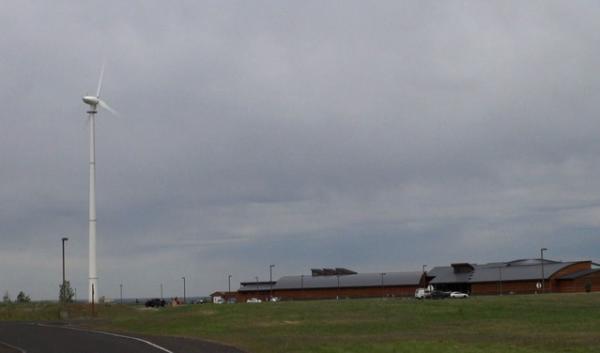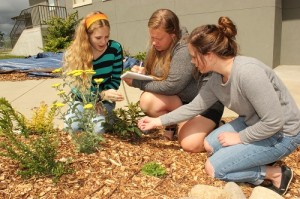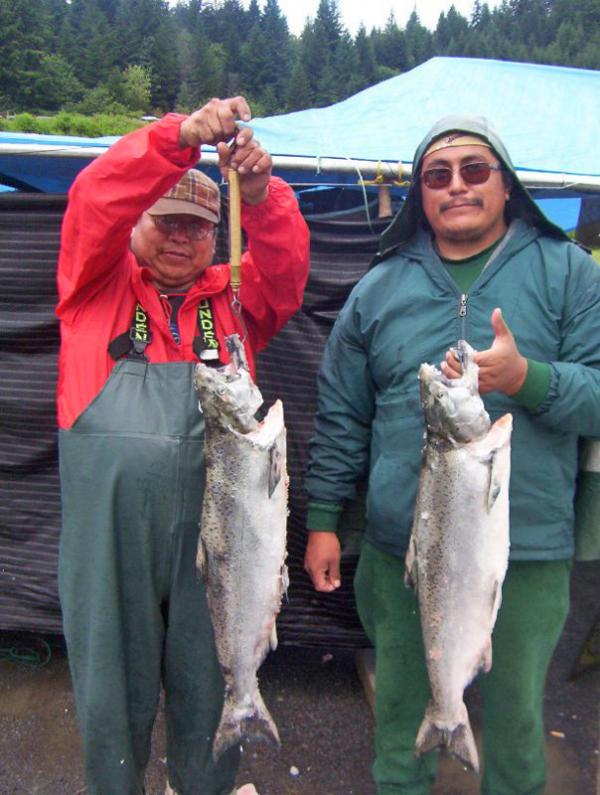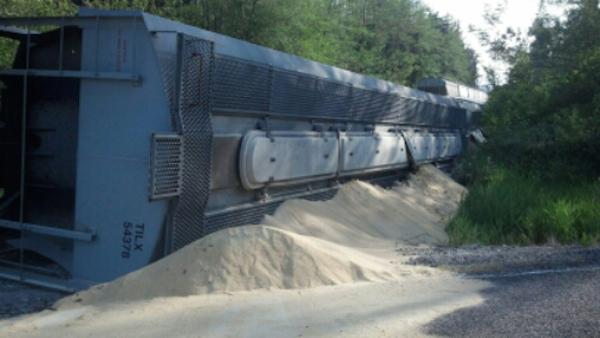
Courtney Flatt
By Courtney Flatt, Northwest Public Radio
PENDLETON, Ore. — You can spot one of the Eastern Oregon’s newest renewable energy projects from Interstate 84. It doesn’t look like other wind projects east of the Cascades.
A single wind turbine rises over the Tamástslikt Cultural Institute on the Confederated Tribes of the Umatilla Indian Reservation.
The turbine blades gain momentum as the wind picks up. The tribes’ executive director, Dave Tovey, said this cultural institute turned out to be the perfect spot for the first turbine erected in Northwest Indian Country. The place where the tribes broke ground for the cultural institute is notoriously windy.
“A lot of our elders would just shake their heads as say, ‘You guys know, the wind always blows up there.’ We always thought, like Indian tribes, and like we do with so many other things here, we turn a seeming disadvantage into an advantage, or even an opportunity,” Tovey said.
Many Northwest tribes have been exploring ways to get more of their electricity from renewable sources that don’t pollute, like coal-fired power plants do, or harm fish — a concern when it comes to hydroelectric dams.
David Mullon is the chief counsel for the National Congress of American Indians, based in Washington, D.C. He said renewable energy is one way tribes can protect natural resources.
“A major portion of the tribal population is located on the reservation homelands. Protecting and conserving the resources on those very small places is an important consideration,” Mullon said.
There are plenty of examples in Northwest Indian Country: Idaho’s Nez Perce Tribe and Washington’s Yakama Nation are looking into generating electricity by burning woody debris in biomass plants. The Colville Tribes in Eastern Washington get energy from biomass and solar panels, too.
In Oregon, the turbine at the Tamástslikt Cultural Institute will generate about 25 percent of the building’s electricity.
Jess Nowland helps manage the building, which serves as a gathering place and museum for the Cayuse, Umatilla and Walla Walla tribes.
Before putting up the wind turbine, the tribes were working on conservation at the center. Nowland said they’ve reduced its energy consumption by about 70 percent, saving more than $700,000.
“The reality is that there are buildings everywhere that you can achieve this kind of savings on,” Nowland said.
This wind turbine is the beginning of renewable energy on the Umatilla reservation. Next up: the tribes plans to install solar panels at the cultural institute.




















